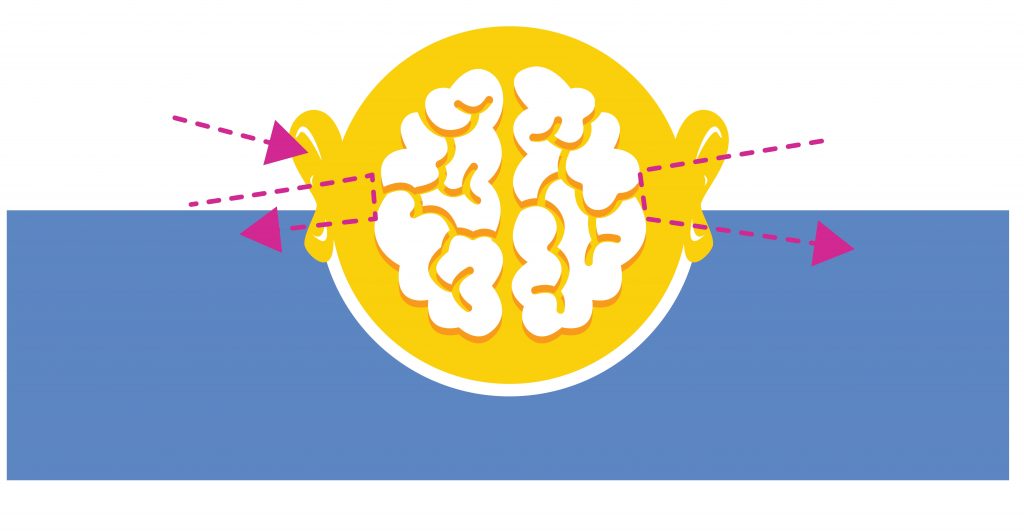feedforward instead of 360 degree feedback tools
Many organisations use 360 degree feedback tools to assist managers and staff to improve their performance. Recent insights into the workings of the brain, however, show that these 360 degree feedback tools are based partly on incorrect assumptions, which means that they don’t stimulate the desired growth and improvement, and may even be counter-productive. Wouldn’t it be better then, to zoom in on the qualities that people do actually have?
feedback tools are based partly on incorrect assumptions, which means that they don’t stimulate the desired growth and improvement, and may even be counter-productive. Wouldn’t it be better then, to zoom in on the qualities that people do actually have?
Giving 360 degree feedback is big business
Almost all large organisations hire companies to organise 360 degree feedback interventions on their behalf. Numerous 360-degree feedback methods were developed for this purpose, with the goal of urging people to perform better based on feedback given by close colleagues.
However, more and more studies refute the idea that performance can be improved by pointing out inferior qualities. They indicate that the brain reacts fearfully to negative feedback. These studies form the basis of a new generation of brain-friendly tests, where the latest insights into how motivation, anxiety and dedication work, are actually taken into account. The feedforward analyse™, which focuses on positive qualities, is an example of this.
New vision on 360 degree feedback tools
One of the studies that show that traditional 360 degree feedback tools may actually not work as well as was previously assumed, is Turn the 360 around, which was published in 2010 by scientists Phil Dixon, David Rock and Keven Oschner. Here, they indicated that traditional feedback interventions, among others, threaten the status and a certain confidence. After all, it’s due to your behaviour that your arrived at a certain position, and then you are addressed on the same behaviour. Your independence is also under pressure and your relationships are threatened: friends whose feedback you receive may turn into enemies, simply because they commented on you. Finally, reasonability is also threatened: ‘Why should I be in the spotlight?’, someone may wonder if he receives feedback.
People who work in teams already experience a lot of tension, and negative feedback may even be counter-productive, says Muriel Schrikkema, partner of Direction and responsible for training courses and coaching on leadership, and one of the founders of the feedforward analyse™. “For some people, 360 degree feedback can come across as a scolding, they might block it out or make counter-productive moves so that the feedback isn’t even registered by them. Only few people can admit right away: ‘You know you’re right, I didn’t do it like I should have, I’m going to do it differently’.”
 This is caused by the dominance of our limbic system, the most primitive part of our brain. This part of your brain wants to experience minimal anxiety and maximum enjoyment. In case of danger or a threat, your brain will immediately respond by producing stress hormones that make you less alert and active. That can also happen when you get negative feedback. These hormones affect your behaviour: they make you less efficient, which means that you don’t concentrate as well and struggle (more than usual) to take in new information. A negative comment on your behaviour will therefore have an even worse lasting impression. Another study by Naomi Eisenberger at UCLA, shows that negative feedback has the same effect on your brains as physical pain. It causes stress.
This is caused by the dominance of our limbic system, the most primitive part of our brain. This part of your brain wants to experience minimal anxiety and maximum enjoyment. In case of danger or a threat, your brain will immediately respond by producing stress hormones that make you less alert and active. That can also happen when you get negative feedback. These hormones affect your behaviour: they make you less efficient, which means that you don’t concentrate as well and struggle (more than usual) to take in new information. A negative comment on your behaviour will therefore have an even worse lasting impression. Another study by Naomi Eisenberger at UCLA, shows that negative feedback has the same effect on your brains as physical pain. It causes stress.
Once the threatening feeling is stirred, it’s very difficult to put it to rest again. It prevents people from being creative, from working together and from making balanced decisions.
And that can also be explained: more than 90 percent of our behaviour is driven by the subconscious mind, which means that we are unable to consciously indicate the underlying reason for our behaviour. This means there is often a discrepancy between what we think, do and feel: what we say we will do, think or prefer is not always consistent with what we really think, do and prefer. So when we use 360 degree feedback tools to indicate that things will be tackled differently, there is a very strong possibility that we won’t actually do this in practice. Therefore, 360 degree feedback does not have the results that it’s supposed to have.
New neural connections
Complimenting people has an entirely different effect. The brain registers this positively, as indicated by the Japanese researcher Dr. Norihiro Sadato, in an experiment. When you compliment someone, the brain produces dopamine, and subsequent better performance is one of the side effects of dopamine. Therefore, complimenting others definitely seems like the best way to inspire people to grow and learn new skills.
The idea that leaders should focus on strengths rather than weaknesses, is not entirely new. American writer and researcher, Tom Rath, was brought up with it. He wrote several books and one of his job titles is that of consultant for a management research firm, Gallup. According to Rath and Gallup, a good leader knows his own qualities, he ensures that people with the right qualities are included in his team and he invests in the qualities of others. As a leader, you should focus more on your talents than on the things that you aren’t that good in. And the same is true for employees, as indicated by a large scale survey conducted by Gallup: if you focus on the qualities that an employee has, he is much more involved in the organisation and he will do a much better job.
George Kohlrieser, clinical psychologist and professor at the IMD Business School, put it as follows at the Managementscope: “The main idea is that people need a safe basis, in order to deactivate the defensive nature of the brain. So we don’t allow ourselves to be driven by fears and threats, but instead allow ourselves to be inspired by opportunities and possibilities.”
Defective 360 degree feedback tools

Positive psychology echoes increasingly. “What you often see is that even though it is preached on paper, people still focus on other people’s concerns and weaknesses, rather than on their qualities”, Schrikkema says. According to her, this is because the tools are not yet adapted to the new studies that show the importance of positive psychology, causing organisations to rely on the ‘old’ 360 degree feedback tools.
For Schrikkema, this was reason enough to think about a new tool (the feedforward analysis™) that could actually emphasize people’s qualities. In the first place, it has to be determined which qualities are relevant for good managers and leaders. Based on more than a hundred leading studies, Schrikkema investigated the characteristics of excellent leaders and managers. “We investigated exactly what it entails to be an excellent leader or manager”, Schrikkema says.
Contact Muriel Schrikkema for more information.
Source article: 360 feedforward instead of 360 degree feedback
- http://www.davidrock.net/files/Turn_the_360_around.pdf
- Mesulam M-M. Principles of behavioural and cognitive neurology. 2nd ed. New York: Oxford University Press, 2000
- http://sanlab.psych.ucla.edu/papers_files/Eisenberger_ch7%20%282005%29.pdf
- http://www.cuyamaca.edu/people/jr-jones/files/pdf/10%20Percent%20Myth%20Articles.pdf
- http://journals.plos.org/plosone/article?id=10.1371/journal.pone.0048174
- http://strengths.gallup.com/110242/about-book.aspx
- http://www.gallup.com/businessjournal/167462/employees-strengths-company-stronger.aspx
- http://managementscope.nl/magazine/artikel/688-george-kohlrieser-secure-base-leadership
- http://www.georgekohlrieser.com/book-care-to-dare.html
- Of Human Bondage by W. Somerset Maugham







